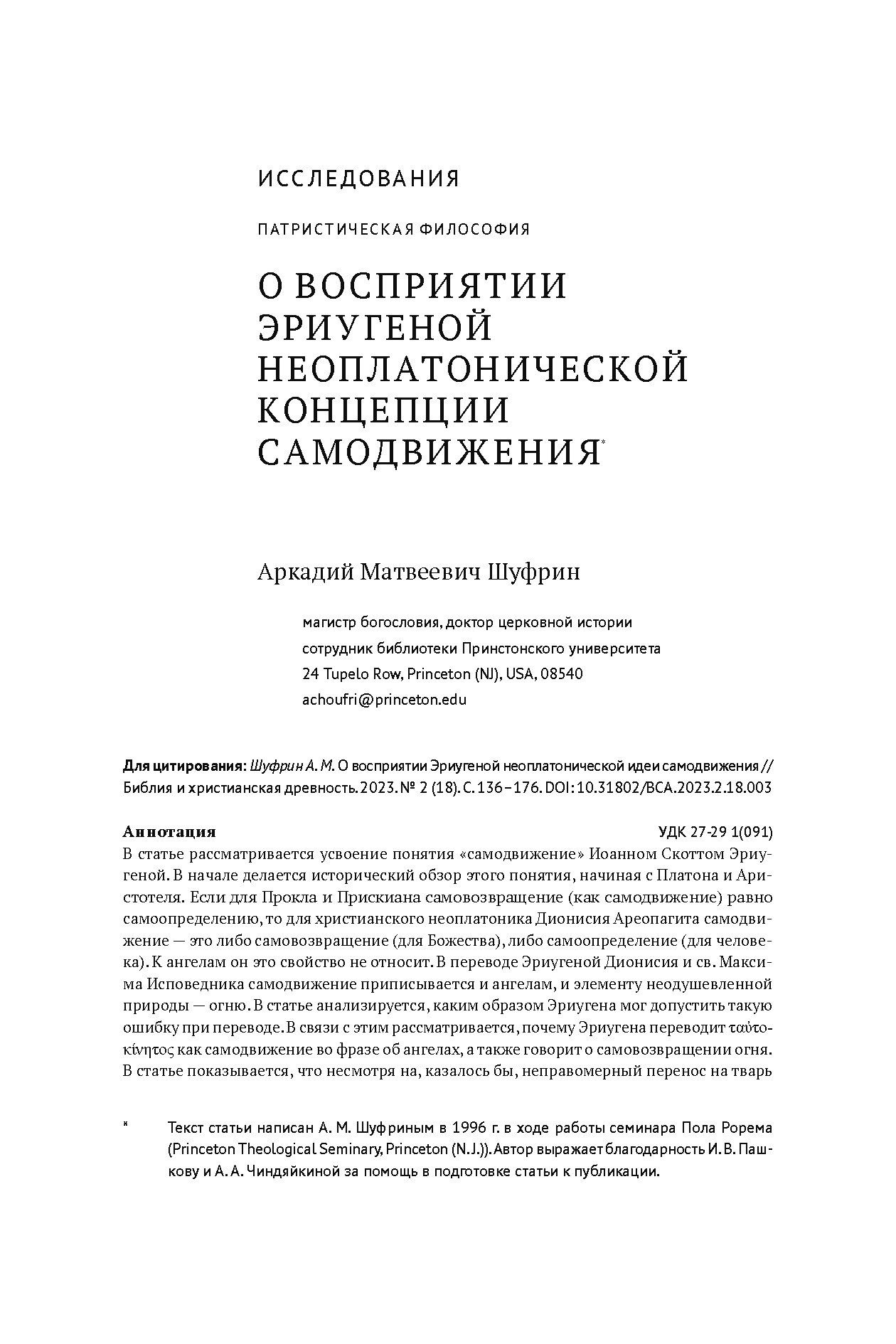On Eriugena’s Appropriation of the Neoplatonic Concept of Self-Movemen
Keywords:
self-movement, Eriugena, self-reversion, Dionysius the Areopagite, self-determination, angels, Maxim the Confessor, self-constitution, Christian NeoplatonismAbstract
The article deals with John Scotus Eriugena’s appropriation of the concept of self-movement. It begins with an overview of its history, beginning with Plato. For him, the soul possesses self-motion by its very nature. Aristotle demonstrates that the first cause of movement (be it the soul or the mind) must, as such, necessarily be unmoved. To meet Aristotle’s challenge, Proclus and Priscianus construe self-movement not as the movement of a pre-existing «self» (or, spiritual substance) but, rather, as the self’s constitution: the soul is the very act of self-reversal. According to Dionysius the Areopagite, the First Cause is not only the object of the creatures’ desire but, also, is Itself moved by Its love to them. The act of unification of the Divine is prior to Its self-movement; therefore, self-movement in Dionysius does not constitute the «Self» of the Divine but is either a self-reversion (for the Divine) or a self-determination (for the humans). Dionysius does not attribute self-movement to the angels. In Eriugena’s (mis-) translation of Dionysius, however, self-movement is attributed, also, to the angels and an element of inanimate nature — fire. The article demonstrates that despite this seemingly invalid application to creatures of the property belonging to God alone, the move made by Eriugena is, in an eschatological perspective, quite justified.

Downloads
Published
Issue
Section
License

This work is licensed under a Creative Commons Attribution-NonCommercial-ShareAlike 4.0 International License.


